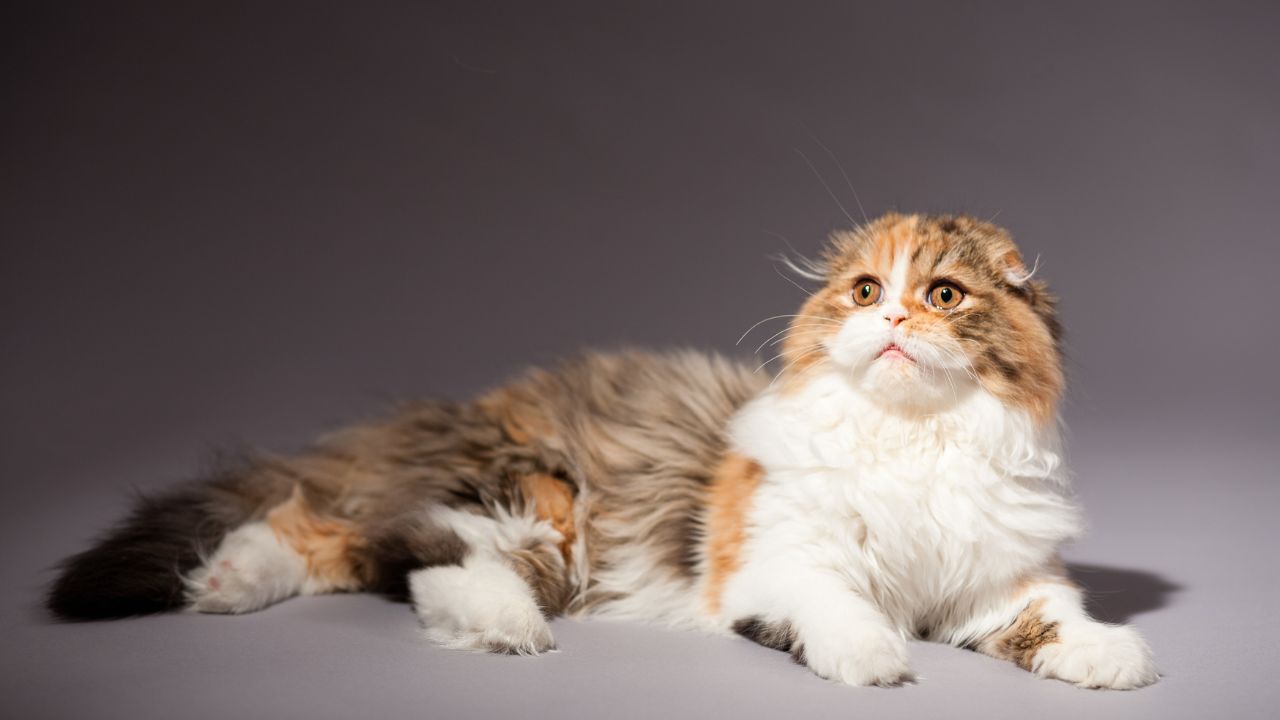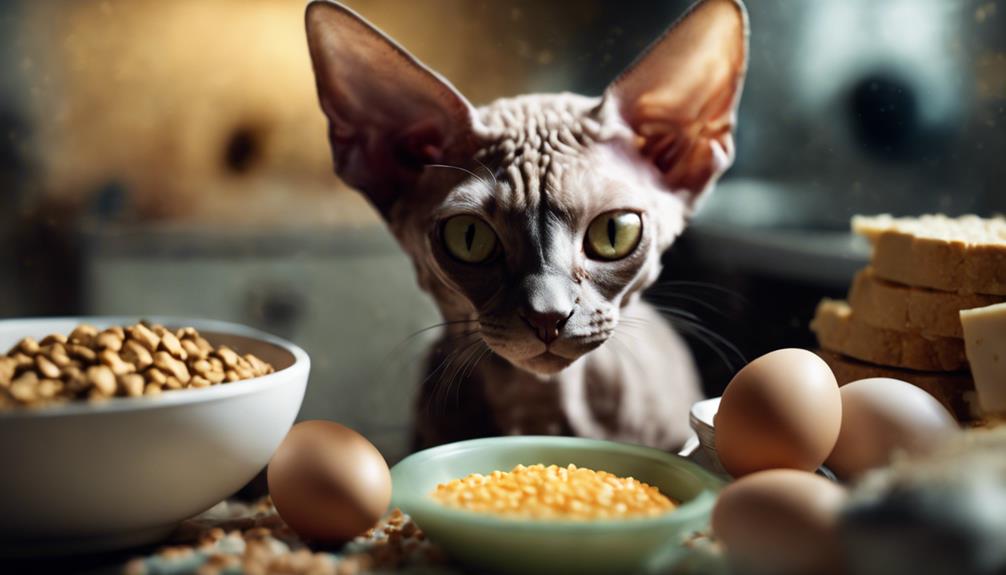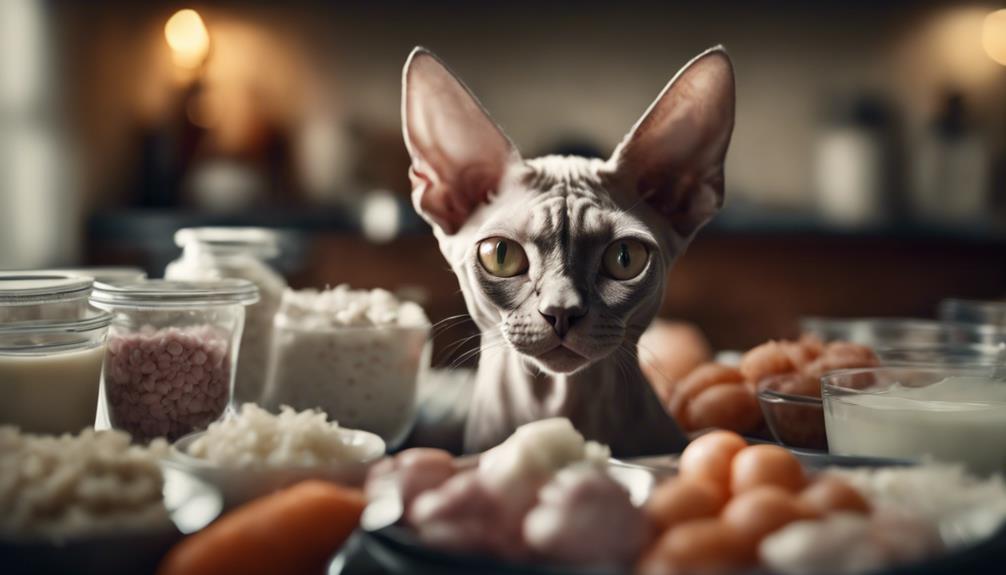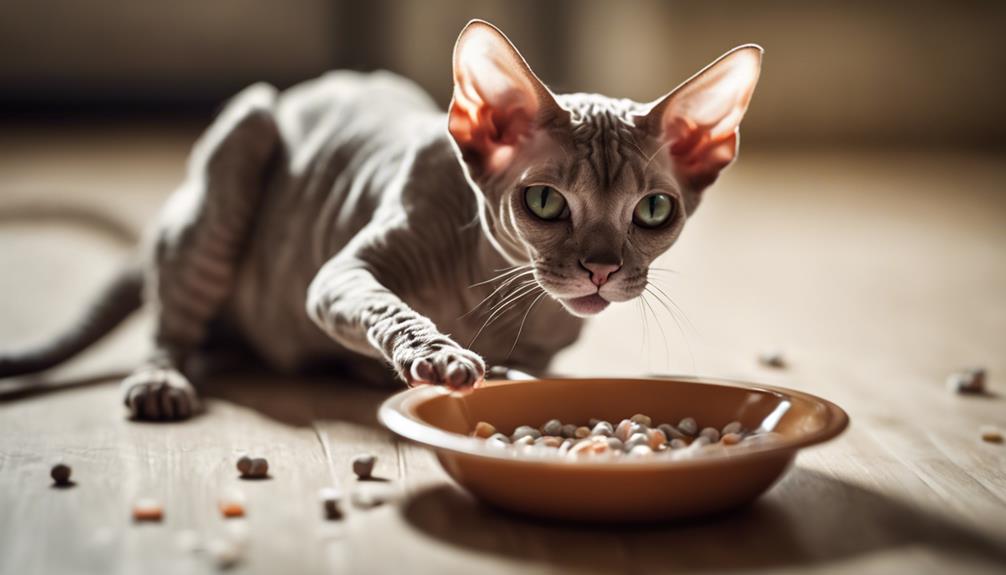Scottish Fold cats are an adorable breed of feline that has captured the hearts of many cat lovers around the world. Known for their unique folded ears, these cats have become increasingly popular in recent years. However, many people wonder if Scottish Fold cats are rare.
The answer to this question is not a straightforward one. While Scottish Fold cats are not as common as some other breeds, they are not necessarily considered rare either. The exact number of Scottish Fold cats in the world is difficult to determine, but it is estimated that there are thousands of these cats living in homes and catteries around the globe.
Despite their popularity, there are still many misconceptions about Scottish Fold cats, including their rarity. In this article, we will explore the topic of whether Scottish Fold cats are rare and provide some insight into the world of these beloved felines.
History of Scottish Fold Cats
The Scottish Fold cat is a popular breed known for its unique folded ears. The breed’s origin can be traced back to a white barn cat named Susie, who was found in 1961 on a farm near Coupar Angus in Perthshire, Scotland. Susie’s ears had an unusual fold in their middle, making her resemble an owl.
Susie was taken in by William Ross, a local shepherd, who noticed her unique ears and decided to breed her with a British Shorthair. The result was a litter of kittens, half of which had folded ears. Ross continued to breed Susie and her offspring, and the Scottish Fold cat breed was born.
The breed’s popularity grew quickly, and Scottish Fold cats were soon exported to other countries, including the United States. In 1978, the breed was recognized by the Cat Fanciers’ Association (CFA).
However, the breeding of Scottish Fold cats has been controversial due to the genetic mutation that causes their folded ears. The gene responsible for the trait is dominant, but it can also cause health issues. Scottish Fold cats can develop a painful skeletal disorder called osteochondrodysplasia, which can lead to arthritis and other joint problems.
To address these concerns, some breeders have crossed Scottish Folds with other breeds to create cats with similar appearances but without the genetic mutation. These cats are sometimes called Highland Folds or Scottish Straights.
Despite the controversy, Scottish Fold cats remain a popular breed worldwide, known for their affectionate and playful personalities.
Physical Characteristics of Scottish Fold Cats
Scottish Fold cats are a medium-sized breed, with a round head, big round eyes, and a distinctively folded ear. The folded ear is caused by a genetic mutation that affects the cartilage and bone development of the ear. The fold can vary in degree, from a single fold to a triple fold, and can even be absent in some cats.
In addition to their unique ears, Scottish Folds have a round face and a short, thick tail. They are generally a muscular breed, weighing between 6 to 13 pounds. Their fur can be short or long, and comes in a variety of colors and patterns.
One thing to note about Scottish Folds is that they are moderate to high shedders. Regular grooming can help keep their fur in good condition and reduce shedding.
Overall, Scottish Folds are known for their adorable appearance and affectionate personalities. However, potential owners should be aware of the potential health issues associated with the breed’s genetic mutation, such as joint problems and ear infections. It’s important to do thorough research and talk to a reputable breeder before bringing a Scottish Fold into your home.
Colors and Patterns of Scottish Fold Cats
Scottish Fold cats come in a wide variety of colors and patterns, making them a popular choice for cat lovers. Here are some of the most common colors and patterns of Scottish Fold cats:
Colors
- White: Pure glistening white with pink noses and paws, and eyes of blue, copper, or gold.
- Black: Solid black with copper or gold eyes.
- Blue: Soft blue-gray with copper or gold eyes.
- Cream: Light cream with copper or gold eyes.
- Red: Bright orange with copper or gold eyes.
- Silver: Shiny silver with green or blue-green eyes.
- Golden: Rich golden with green or blue-green eyes.
- Chocolate: Dark brown with copper or gold eyes.
- Lilac: Pale grayish-pink with blue eyes.
- Cinnamon: Warm reddish-brown with copper or gold eyes.
Patterns
- Solid: One solid color all over the body.
- Bicolor: Two colors, usually white and another color, in a pattern all over the body.
- Tricolor: Three colors, usually white, black, and orange, in a pattern all over the body.
- Tabby: Distinctive stripes or spots on the body.
- Tortoiseshell: Mottled mix of black, orange, and cream.
- Calico: A mix of white, black, and orange in a pattern all over the body.
- Shaded: Gradual shading from one color to another.
- Smoke: Solid color with a white undercoat.
- Harlequin: Large patches of two colors, usually black and white, in a pattern all over the body.
- Point: Darker color on the face, ears, tail, and feet.
While Scottish Fold cats come in many colors and patterns, some colors and patterns may be rarer than others. For example, lavender Scottish Fold cats, which have a pale grayish-pink coat, are considered rare. Chocolate and seal point Scottish Fold cats, which have dark brown coats with darker points on the face, ears, tail, and feet, are also considered rare.
Overall, Scottish Fold cats are a beautiful and unique breed with a wide range of colors and patterns to choose from.
Temperament and Behavior of Scottish Fold Cats
Scottish Fold cats are known for their charming and easygoing temperament. They are generally sociable and affectionate, making them great family pets. They are comfortable around all members of the family, including children, and are known to be loyal to their owners.
These cats are playful and intelligent, and enjoy interactive playtime with their owners. They are adaptable to different environments and tend to get along well with other cats and cat-friendly dogs. Scottish Folds are also known to be quiet and family-oriented, making them ideal for households with children.
In terms of exercise, Scottish Folds do not require a lot of physical activity and are content with indoor play. They are not high-energy cats, but they do enjoy playing with toys and scratching posts. It is important to provide them with enough stimulation to prevent boredom and destructive behavior.
Scottish Folds can have either straight or folded ears. Both types have rounded tips and are medium to small in size, set far apart on the head. Scottish Fold cats are medium-boned and have rounded, sturdy bodies with bushy medium-long tails.
While Scottish Folds are a distinct breed, they share many characteristics with other shorthair cats such as Scottish Shorthairs, British Shorthairs, and American Shorthairs. However, their unique folded ears and charming personality make them stand out from the crowd.
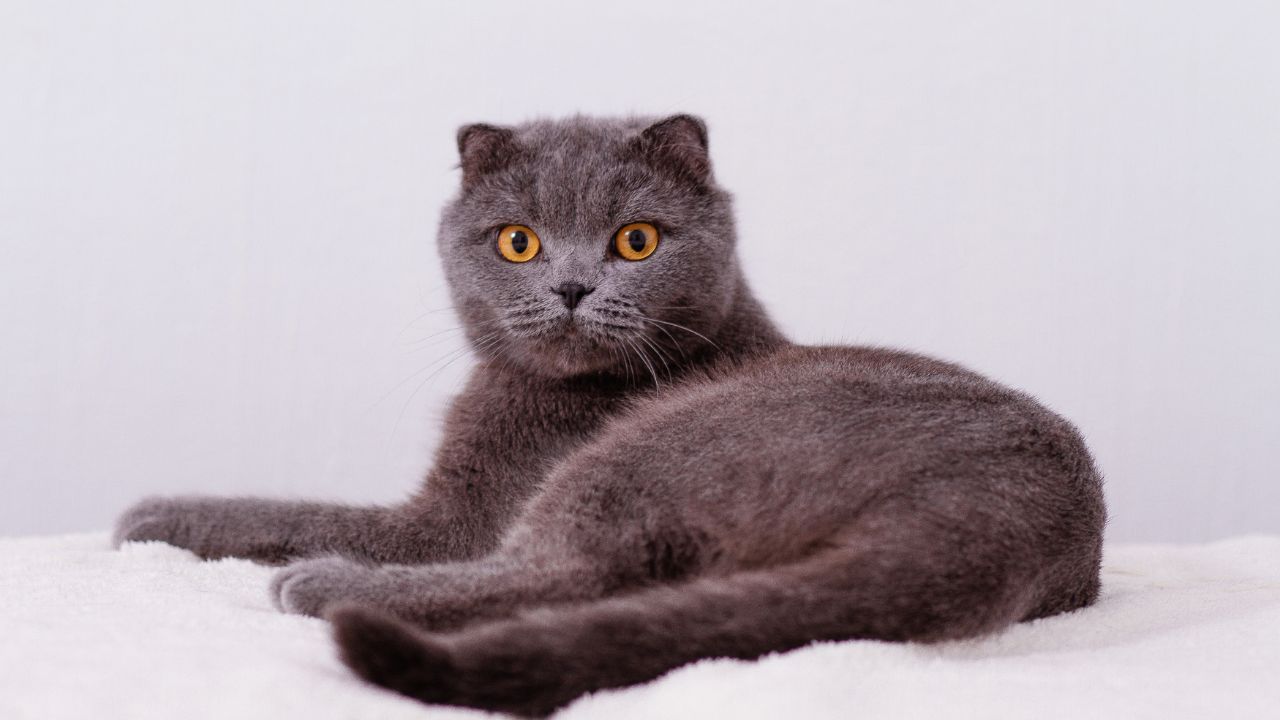
Health Issues in Scottish Fold Cats
While Scottish Fold cats are undeniably cute and charming, they are unfortunately prone to certain health issues. Here are some of the most common health problems that Scottish Fold cats may experience:
Osteochondrodysplasia
One of the most well-known health issues associated with Scottish Fold cats is osteochondrodysplasia, also known as folded ear disease. This genetic condition affects cartilage and bone development, leading to the characteristic folded ears that give Scottish Folds their unique appearance. However, this condition can also cause painful degenerative joint disease, which can result in fusing of the tail, ankles, and knees. This can lead to a reluctance to move, abnormal posture and gait, lameness, and short misshapen limbs.
Arthritis
Scottish Fold cats are also prone to arthritis, which can be caused by their cartilage abnormalities. Arthritis can cause pain and discomfort, making it difficult for cats to move around and enjoy their daily activities. This can be especially problematic for older cats, who may already have weakened joints.
Ear Infections
Scottish Fold cats are also more prone to ear infections due to their unique ear shape. The folds in their ears can trap moisture, creating a breeding ground for bacteria and mites. This can lead to painful and uncomfortable ear infections that can affect a cat’s hearing and overall health.
Obesity
Like many cat breeds, Scottish Folds are prone to obesity if they are overfed or do not get enough exercise. Obesity can lead to a range of health problems, including diabetes, heart disease, and joint issues.
Dental and Nail Issues
Scottish Fold cats may also experience dental and nail issues, particularly if they are not given proper care and attention. Dental problems can lead to pain and discomfort, while overgrown nails can cause discomfort and difficulty walking.
Deafness
Some Scottish Fold cats may also be born with a genetic predisposition to deafness. This can be caused by the same gene that causes their unique ear shape, and can affect one or both ears.
While Scottish Fold cats are undeniably adorable, it is important to be aware of their potential health issues. Regular veterinary check-ups, proper care and attention, and a healthy diet and exercise routine can help keep these cats happy and healthy for years to come.
Grooming and Care for Scottish Fold Cats
Scottish Fold cats have a dense, plush coat that requires regular grooming to keep it healthy and free from mats. Brushing your cat’s coat once or twice a week with a soft-bristled brush will help to remove loose hair, prevent hairballs, and distribute natural oils throughout the coat. If you have a long-haired Scottish Fold, you may need to brush their coat more frequently to prevent tangles and mats.
In addition to regular brushing, it’s important to keep your Scottish Fold’s nails trimmed to prevent them from becoming too long or sharp. You can use a pair of cat nail clippers to trim your cat’s nails every few weeks, or you can take them to a veterinarian or groomer for a professional nail trim.
Proper nutrition is also essential for your Scottish Fold’s health and well-being. Choose a high-quality cat food that is formulated for your cat’s age, activity level, and health needs. You may also want to consider feeding your cat a combination of wet and dry food to provide them with a balanced diet.
Regular visits to the veterinarian are also important for maintaining your Scottish Fold’s health. Your veterinarian can perform routine check-ups, vaccinations, and preventative care to keep your cat healthy and happy. If you have any concerns about your cat’s health, behavior, or well-being, don’t hesitate to contact your veterinarian for advice.
When it comes to ethical concerns, it’s important to choose a reputable breeder or adopt from a rescue organization to ensure that your Scottish Fold is healthy and well-cared-for. Scottish Folds are prone to certain health issues, such as ear infections and joint problems, so it’s important to choose a breeder who tests their cats for these conditions and takes steps to prevent them.
Finally, if you plan to show your Scottish Fold, you may want to consider registering them with a cat registry organization. The Cat Fanciers’ Association (CFA) and The International Cat Association (TICA) are two of the most well-known cat registry organizations in the United States. Registering your cat with one of these organizations can help you to connect with other Scottish Fold owners and breeders, and may also provide you with access to cat shows and other events.
Cost and Popularity of Scottish Fold Cats
Scottish Fold cats are a popular breed that has gained a lot of attention in recent years. They are known for their unique folded ears and friendly personalities. However, with their popularity comes a higher price tag.
Cost of Scottish Fold Cats
According to our research, adopting a Scottish Fold can cost between $300-$500, and getting one from a breeder can cost as much as $3,000. The average price range for a Scottish Fold can vary from $1000 to $1800. If you purchase from an acclaimed, prize-winning breeder, the cost may exceed $2000. However, you can also get cats from lesser-known breeders at around $500-$700. It is important to note that the cost can vary depending on the breeder and the cat’s lineage.
Popularity of Scottish Fold Cats
Scottish Fold cats are a highly sought-after breed and are becoming increasingly popular. They are recognized by many cat associations, including the Cat Fanciers’ Association (CFA), The International Cat Association (TICA), and The Governing Council of the Cat Fancy (GCCF).
Their popularity has led to an increase in demand, which has driven up their price. However, it is important to note that popularity does not always equate to quality. It is crucial to research breeders and ensure that they are reputable and ethical.
Adaptable and Life Span
Scottish Fold cats are known for their friendly and adaptable personalities. They are affectionate and enjoy being around their owners. They are also adaptable to different living situations and are well-suited to apartment living.
The average lifespan of a Scottish Fold cat is between 9-12 years. However, with proper care and attention, they can live longer.
In conclusion, Scottish Fold cats are a popular breed that comes with a higher price tag. It is important to research breeders and ensure that they are reputable and ethical. Scottish Fold cats are a friendly and adaptable breed that can make great pets for the right owner.
Conclusion
In conclusion, Scottish Fold cats are considered rare due to their unique physical features. The breed is known for its folded ears, which is a result of a spontaneous mutation. The mutation is caused by an incompletely dominant gene that results in both folded and straight-eared cats. Scottish Folds are medium to large-sized cats that can come in any color, even calico. Males typically weigh 4-6 kg (8.8-13.2 lb), and females weigh 2.7-4 kg (6.0-8.8 lb).
Scottish Folds are sweet-tempered and short-haired cats that make great companions. They are known for their unique countenance that almost resembles an owl. The Fold’s entire body structure, especially the head and face, is generally rounded, and the eyes large and round. Scottish Folds are not only adorably unique cats, but they also have an interesting history.
The years of selective breeding are responsible for developing double or triple folds on the ears of today’s modern Scottish Fold cats. Unfortunately, the gene for folded ears is associated with a higher risk of developing ear infections and other ear-related health issues. Therefore, it is important to keep their ears clean and dry to avoid any potential health problems.
If you are interested in having a Scottish Fold or already have one, these 12 facts can help you learn more about these cats and their history. Scottish Folds are a relaxed and calm companion with low maintenance, making them the best option for people who want a peaceful and loving pet. Overall, Scottish Fold cats are rare, unique, and lovable pets that make great additions to any household.

